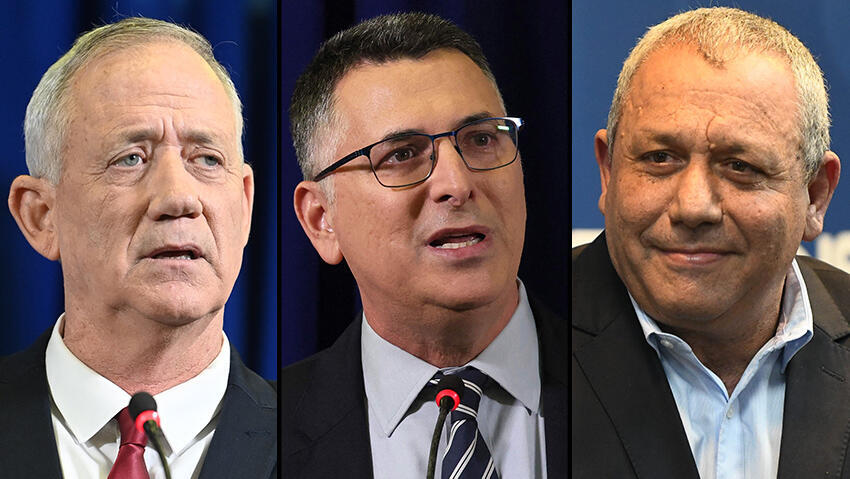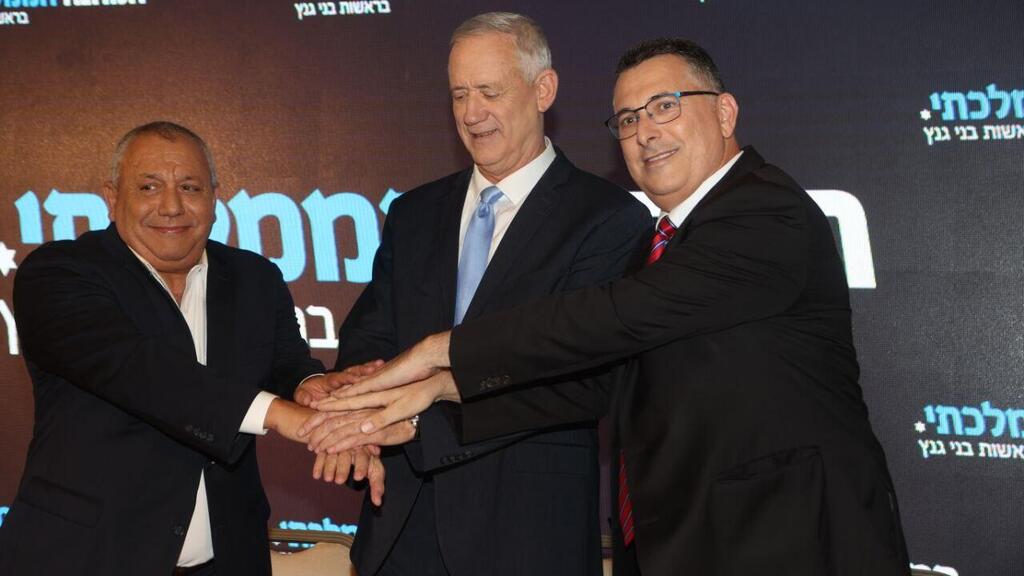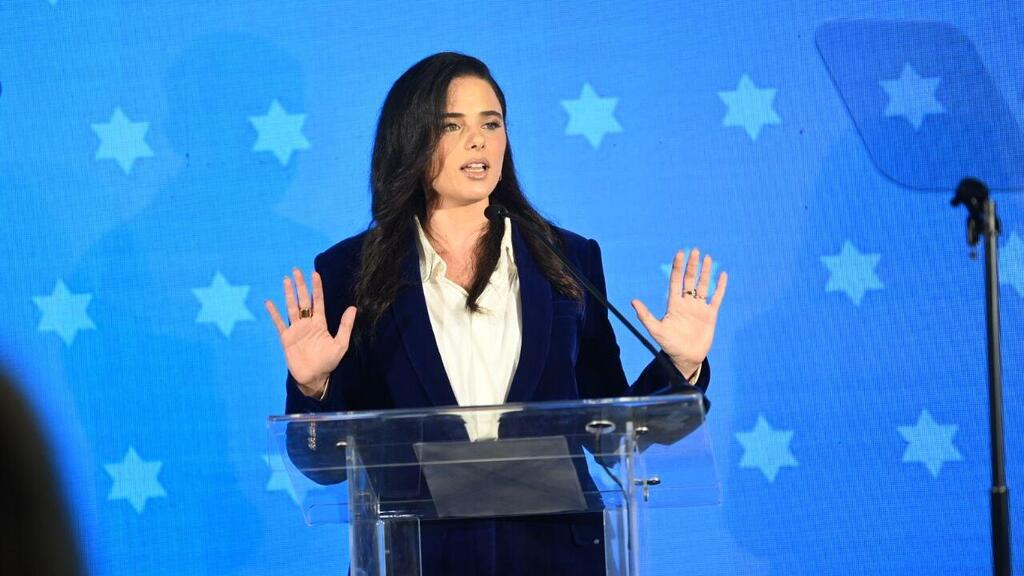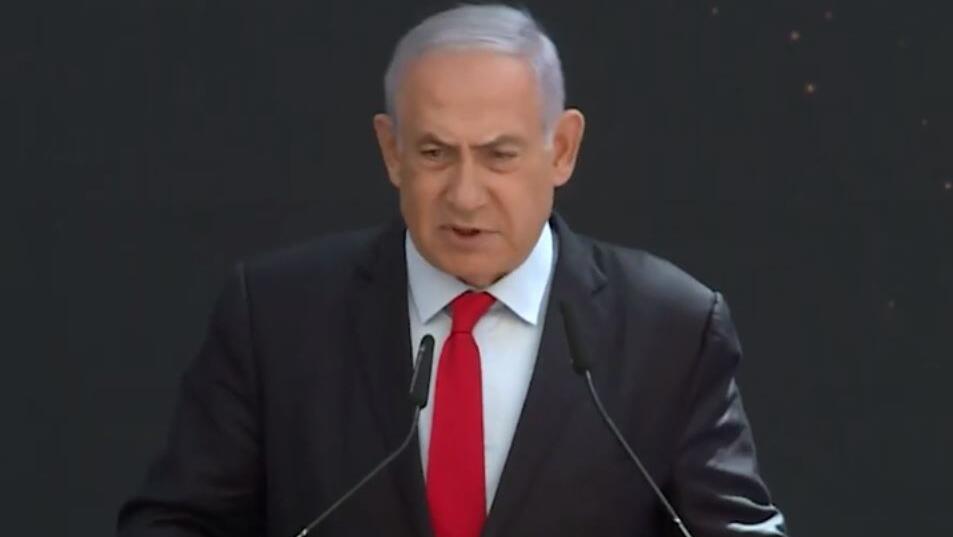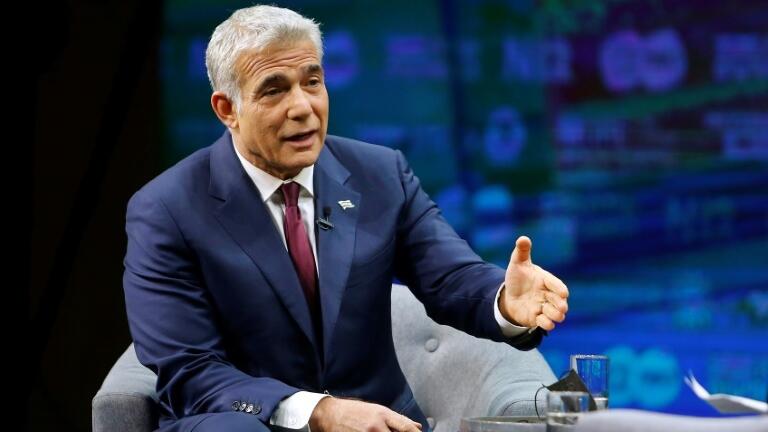Lt. Gen. (res.) Gadi Eisenkot, former chief of staff of the Israel Defense Forces, announced Sunday he is joining the political party headed by Defense Minister Benny Gantz and Justice Minister Gideon Sa'ar, and will compete for a spot in the legislature in the November 1 elections.
Eisenkot, who commanded the Israeli military in 2015-2019, succeeding Gantz in the post, will be No. 3 on the Knesset candidates list, a joint run by Gantz’s Blue and White party and Sa’ar’s New Hope party rebranded as the National Unity party, although a more literal translation would be the “State Camp.”
6 View gallery


Gadi Eisenkot, right, replaced Benny Gantz as IDF chief of staff
(Photo: Defense Ministry)
MK Matan Kahana, until recently minister of religious services for the Yamina party, will be No. 9 on the candidates list.
Eisenkot, 62, retired from the military in January 2019 after more than 40 years of service. He had been considering joining the political world for over two years, having recently also negotiated with Yair Lapid and his Yesh Atid party.
“Gadi is a serious, honest, valuable, and very Zionist man, who’s committed to Israeli security and Israeli society,” Sa’ar tweeted on Sunday morning.
In an article published in 2020, Eisenkot discussed some of his political opinions and perspectives about Israel.
The internal division in Israeli society is the only real existential threat to Israel, he said, as opposed to Iran and Hezbollah. He also expressed support for a diplomatic solution along the lines of the two-state solution to resolve the Israeli-Palestinian conflict. This puts him in alignment with Gantz, but in opposition to some of Sa’ar’s stances.
The negotiations between Sa’ar and Eisenkot were the main obstacle before the announcement of the joint run.
“Generals don’t have the same appeal they used to have in the eyes of the Israeli public,” said Prof. Gideon Rahat, head of the Political Science Department at the Hebrew University.
“They used to step in and win right away, but this hasn’t happened since 1999 [when Ehud Barak became premier]. They are still, however, highly regarded by large portions of Israeli society. Especially by those who see military service as a core value, and don’t have higher authorities, like the Orthodox, for example,” he added.
Dr. Eyal Chowers, a professor of political science at Tel Aviv University, is doubtful Eisenkot will have a dramatic effect on the election results, but for other reasons.
“It’s hard to say if he’ll be a real game changer. There were people in the past who had their eye on a job as a public servant during their military career, but he’s not one of them. He didn’t create a specific image for himself, so it’s hard to say if there are parts of society waiting especially for him,” Chowers said in an interview.
Some were more critical of the move.
“No doubt this is a big contribution to the left wing in Israel,” Ayelet Shaked, minister of the interior and head of the Yamina party, which is running in the election as part of the Zionist Spirit joint list, said on Sunday morning.
“We will make sure that any government that is formed will not be able to promote their shared vision with Gantz to establish a Palestinian state. Things have become clearer and the people of the Statist Right have one home − the Zionist Spirit,” she wrote in a tweet.
Rahat explained why Shaked might have a strong interest in differentiating herself from the new National Unity party.
“Eisenkot is in a way a threat to Ayelet Shaked. Anyone who’s very religious won’t even consider voting for her. But moderate-right people, and secular right-wing people who have a security agenda, are the exact electorate that both are fighting for,” he said.
Chowers said, however, that the new party’s goal is different than Shaked’s.
“I don’t think the party has become an alternative to rule Israel in the sense of very broad public support. What they are more likely to do is what [former Prime Minister Naftali] Bennett did, but in a more convincing way. Meaning Gantz could become prime minister as some sort of a compromise, with support from the ultra-Orthodox and Shaked. In certain circumstances, they might be able to take the lead,” he said.
Rahat added that if Eisenkot succeeds in helping the National Unity party to become a potential ruling party, he could pose a threat to Opposition Leader Benjamin Netanyahu.
“Nobody has the public support Netanyahu has. But if there are two parties running against him, they could gather a wide array of those opposed to Netanyahu and eventually weaken him,” he said. “Netanyahu is very good at campaigning against a single person. The more people and parties there are running against him, the more he loses his advantage. So, while Eisenkot joining Gantz could give Lapid somewhat of a headache, it’s by far worse for Netanyahu.”
One thing observers agree on is that Eisenkot’s demand that the National Unity party hold a primary to select its candidates for the next election after this one is surprising.
“Eisenkot’s demand to create a democratic party with primaries should be highly appreciated,” said Rahat. “He came into politics as a personality, and yet he’s talking about changing personal politics. This demand of his shows he came to be a team player and not a lone star. That’s refreshing.”
Chowers expressed some skepticism as to the value of a military career in preparing one for the political arena.
“Generally, people like Gantz and Eisenkot are very worthy, on the personal level. It’s good for the political system to have people like them. But on the other hand, they won’t save Israel. It’s a state in [political] deadlock, in many ways, especially when it comes to the conflict with the Palestinians and deciding what Israel wants to become. It needs creative solutions and people who think differently. Most generals in Israeli politics didn’t show a lot of creativity; they’re systematic people with certain patterns in their ways of thought,” Chowers said.


